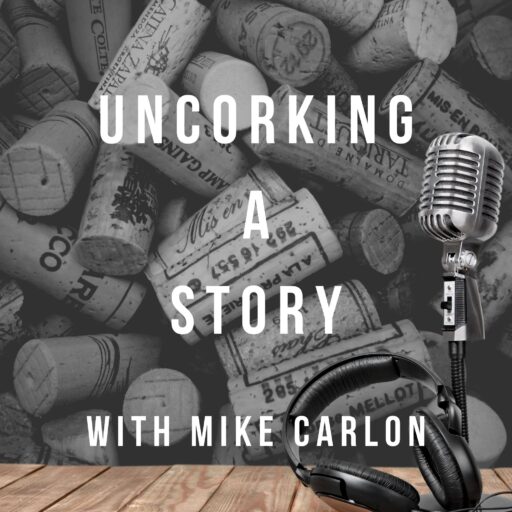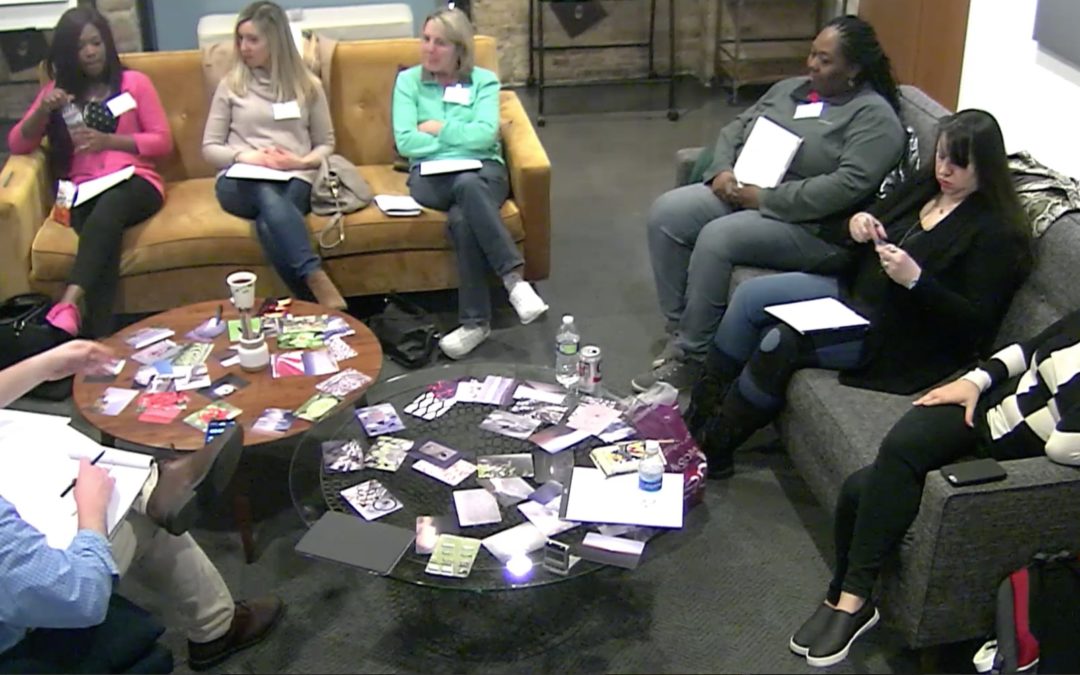If you are one of those fortunate to have not only found your true calling in your professional life, but also make a living doing it, do you remember the moment when it clicked for you? Is it easy to recall the exact moment when you realized I was meant to do this?
For me that moment happened in 1997. I was working for one of the world’s first interactive marketing agencies and my company, Modem Media, was asked by our client, Citibank, to develop a new consumer facing website for the bank. I worked in our relatively new research/planning division where my job was to find and analyze trends not only in interactive marketing, but in how consumers were integrating computers, devices, and the web into their lives. I was also responsible for setting up primary consumer research, including focus groups, to uncover what they wanted in interactive experiences.
In 1997, the Spice Girls were blowing up, the Titanic sank on the big screen, and I was exposed to my first focus group. Looking back, it’s surprising I pursued a career in qualitative research after that night.
If the term qualitative research is Greek to you, watch the video below to learn more.
There were three clients in the back room, all who have since retired; Peter, Paul, and Howie. They were the internal project owners and, unfortunately for the moderator that night, were also a three-headed monster that was not aligned on what it wanted in the site. This led to several notes being sent in with follow-up questions or new topics. I remember meeting the moderator, Clint Clifford from Greenfield Consulting (now Firefly), earlier in the evening. He was clean shaven and his hair was brown at the time. When the groups ended at 10pm, he looked like the actor who played the captain in Titanic.
In spite of the dysfunction in the backroom, I was amazed as I saw Clint work the room and moderate the discussion – going off of his guide to follow his nose in interesting (and unplanned) directions. I knew that night that I wanted to become a moderator like Clint, but there was a problem — big companies don’t commission qualitative studies run by 23-year-old moderators. This is largely because running the discussion is actually a small part of the job; knowing the right questions to ask and making sense of all the output is paramount to the job and the only way to be good at those core competencies is through experience. I barely had any.
I needed a plan.
My first step was to learn all I could about the qualitative research business. To do that, I pestered every single moderator I hired about his or her experiences in the industry. I wanted to know how they got involved in it and what they felt made them successful and set them apart from other consultants. Interestingly, I found that many did not come out of a traditional research discipline; most were former marketers or agency veterans who fell into consulting after, for lack of a better term, their shelf life expired. They were marketing people first, and researchers second. Because they spent years in the marketing trenches, they were able to listen to a client share their needs and ask appropriate questions up front to reframe issues and identify the real opportunity. This led them to quickly craft the right questions to ask consumers and gave them the ability to translate responses into meaningful output their clients could us to make better decisions. It underscored the need for marketing experience in the organizations I would want to consult for in the future.
While I was probing moderators about their experiences, I was also reading every article I could about the field. Quirks was an invaluable resource for me at the time (and a magazine I would later contribute to on a number of occasions). In addition to articles, I also read books written by people who did what I wanted to do (Moderating to the Max by Jean Bystedt, Siri Lynn, and Deborah Potts, PhD left a strong impression on me and I refer to it regularly).
It became clear to me that working at the agency would not help me advance on my path to becoming a moderator. The company started to place a greater emphasis on campaign analytics vs. what I would call “softer” consumer insights and started to invest less in my field of interest. I made the difficult decision to leave and, after helping a startup research company get off the ground, went to MasterCard where I worked in global marketing for a few years. My experience there was invaluable as it helped me see the world from a marketers’ point of view. After a global organizational alignment (actually named GOAL- as in, it is our goal to reduce headcount), I took a job at Unilever where I learned the ins and outs of CPG marketing – and loved every minute of my 5 years at the consumer products giant.
While at Unilever, I sought out brands that didn’t invest heavily in research because they were used strategically to generate cash to be invested in other growing areas of the business. I asked the managers of those brands what they would do if they had money to spend on qualitative research and, fortunate for me, their lists were long. The company owned an R&D facility up the road from our Greenwich headquarters where we could host sessions at no rental costs to the brand. Since there was a constant flow of consumers coming in and out of the facility to test new products, we had access to a pool of willing participants, removing recruiting fees as a barrier. My moderation was, of course, free so the only expense the brand needed to pay for was incentives for study participants (even a brand with a minuscule budget could find a few thousand bucks for those). So, during the day I wore my Consumer and Market Insight manager hat and at night I practiced my moderating skills in a real-world environment.
When Unilever Home and Personal Care left Connecticut to merge with the company’s food division in New Jersey, I decided it was time to say thanks for the memories and join the supplier side of the business as a moderator.
Over a decade elapsed between when I identified what I wanted to do for my career and when I was able to start doing it as my primary source of income, but for me it could not have happened any other way. If there are three lessons in my story, they are as follows:
- Nothing happens overnight. Comedians put in long hours at comedy clubs to hone their craft before they play theaters. Successful bands play small venues for years, sometimes decades, before playing arenas. Actors don’t go from their high school product of Camelot to starring roles on the big or small screen. Long term success in your career may take a while, but it will come if you are persistent and don’t lose focus.
- Seek the advice of experts. I not only read everything I could about my field of interest, but I picked the brains of successful people who had what I wanted. Regardless of your field of interest, put in the time to educate yourself about what it is you want to do and talk to people who are successful in the field. More often than not they will be willing to mentor you if you simply ask them.
- Walk before you run. I cut my teeth in running focus groups by finding low pressure situations where I could practice and learn my craft without the fear that I would damage my reputation or lose my job if I made a mistake – and yes, I made many mistakes along the way (you will too). Mistakes can actually be your best teacher if you are willing to learn from them (but it is best to make them when as few people as possible are watching).
I’m now just over twenty years into my professional career and remain passionate about the work I do for my clients. Helping marketers think through their challenges, crafting (and selling) a learning plan to address those challenges, and transforming output into insights that will be used to help an organization make better decisions is now embedded in my DNA. I’ve been giving a lot of thought to leaving the supplier world and going back inside a large organization to do this at a transformative level. As I debate doing so, I will keep in mind the three lessons outlined above to guide my next career move.
If you do something you love for a living, please share your journey in the comments below.
Aside from being the founder of Vertigo Partners, Michael Carlon is a published novelist and podcaster. He holds an MBA with a concentration in marketing from Fairfield University and a BA in Psychology from the University of Connecticut.

